Silloth Plasterers: Whenever you are carrying out improvements or building work on your property in Silloth it's more or less guaranteed that you will either need to get some old plaster walls re-skimmed or some fresh plaster put onto. Plastering is an extremely skilled occupation and whilst you may be quite useful around the house, it isn't really something that you should attempt yourself, unless of course you have great confidence in your abilities. This is even more important if ceilings have to be skimmed, as you will probably get your property and yourself in a bit of a state if you should try this. You would be wise to call in an experienced plasterer to tackle this work, and whilst you should have no hassle identifying a plasterer in Silloth, discovering one who's got the time free to fit your job in could be more challenging. Plasterers, much like a lot of tradesmen, tend to be in great demand, thus if it's feasible try and schedule the job several weeks before.
When trying to achieve a number of home remodeling assignments, you've got to bear in mind the likelihood of plastering work being required. It may be stuff like fitting cornices or coving before decorating, skimming dry lining, re-plastering a ceiling or latex screeding. Do not imagine however that those are the only plastering, screeding and rendering tasks which might be needed, as there are certainly lot's more possibilities.
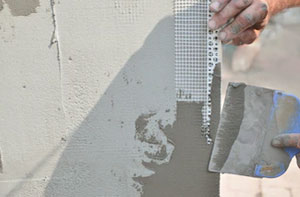
Ask to see some photos of previously accomplished projects when talking to prospective Silloth plasterers, anyone that knows their trade will be happy to do this, and have nowt to hide. Plastering demands a focused attitude and should not be attempted by "cowboys". Though it may not be immediately obvious, poor quality plastering can result in big complications later on.
It's when the painting and decorating starts that any imperfections become startlingly obvious. And even more so, with the sun shining on the newly plastered surfaces. So, ensure you only consider decent plasterers in Silloth.
Being flat and smooth is the most crucial attribute of plastered surfaces, because they are just a base onto which other materials are applied. Slight blemishes and cracking can be filled and sanded afterwards with very few issues, but uneven plaster is difficult to cover up. An unevenly plastered surface can cause serious complications with the wallpapering and painting of ceilings and walls, the fitting of skirtings, bathroom or kitchen tiling and the installation of kitchen units.

A polished finish, straight from the trowel is what you should anticipate from professional Silloth plasterers. You can recognize when plastering has been carried out by a professional, because a brief rub down is all that's required and no sanding is necessary. You can assume that the plastering has not been done correctly if strenuous sanding is necessary. The alarm bells should definitely start ringing out if electric sanders are being used with any regularity.
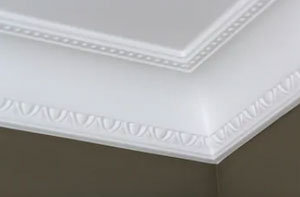
In recent times, one of the most common jobs a plasterer is requested to do, is plaster over an old artex ceiling. There are still thousands of ceilings in Silloth which are decorated with this once fashionable finish. So as to get your ceilings looking fresh and contemporary once more, your Silloth plasterer will gladly cover them up with a smooth new finish. If you are more retro in your taste, you might want to give your currently smooth ceilings some character by actually putting on artex.
Do-it-Yourself Plastering Silloth: Although when you've got plastering work which needs to be carried out in your home or business premises in Silloth, it's preferable to hire a competent plasterer to do the job, it's still quite possible to have a go on your own, if you have the confidence and are reasonable at DIY. Doing a test run on a spare bedroom or an out of sight area is certainly a good idea when you are starting out on your first plastering journey. If possible try to practice on an area that's already got an inaccurately plastered surface, so your efforts cannot make it much worse. This should enable you to relax and get accustomed to the required techniques and will be significantly less stressful. You'll quite likely make rather a mess of it on the first attempt, but you don't have to worry because it's possible to re-skim a wall surface as many times as you want.

If you do not want to go to the lengths of taking a plastering course, you might be able to get some good tips and hints by watching and following You Tube tutorials, although it is not always quite so easy as it's made to look in those videos. Plastering is a "hands on" process and the more you practice the more accomplished you get. Through trial and error you may even develop you own strategies for getting a flawless plastered finish. But if unsure, keep to the tried and proven procedures. Confidence is the most important issue with plastering, and the more frequently you do it, the more confident you are apt to get. Once you have perfected this skill to a level you're satisfied with, you can progress to plastering the main walls of your property. If you do mess things up, you still have the option of bringing in a professional Silloth plasterer to skim over your mistakes.
Plaster Patching Silloth
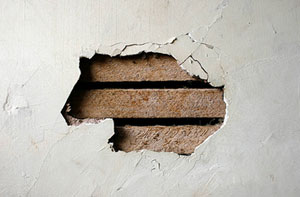
If you live in an older property, or have fairly recently had some building work carried out on your house in Silloth, it's fairly possible that you might have damaged or cracked plasterwork that needs to be repaired or patched. Since the plasterwork is a crucial component of your wall's surface, you should keep it in sound condition so that it can be decorated and kept looking neat. There is little worse than seeing cracked plaster walls, or sections that are untidy or thoughtlessly filled with Polyfilla. A qualified Silloth plasterer will pretty quickly have your walls looking good once again, and you'll be able to conclude your painting and decorating and have them looking in perfect condition once again. Factors like vibration, dampness, settlement, accidental damage and shrinking might cause troubles with plaster walls and ceilings. There's not much point patching these areas before sorting out any underlying problems, or else there'll probably be a reccurence of the issue.
Plastering Courses Silloth

If you'd like to acquire a basic knowledge of plastering or perhaps start a career in plastering you might want to consider enrolling for an appropriate course. For those eager to improve their plastering skillsets and for newbies, there are actually a multitude of plastering related courses available. There are both beginner and advanced plastering courses offered in either City & Guilds and NVQ. Beginners courses (Level One) tackle things such as putting on set coats, mixing plaster products, applying scratch coats (walls), readying background surfaces, fixing sheet materials and putting on floating coats. Advanced (level two courses) cover skills like reverse moulding for fibrous work, fibrous plastering, plastering to exterior backgrounds, cement and sand screed laying and dry lining. To discover more on available plastering courses in Silloth and nearby, do a quick search on Google. You can book intensive 5 day plastering courses HERE.
Artexing

Artexing Silloth: Though more popular in the 1970's and 1980's artex continues to be a decent way to improve the look of a ceiling, particularly a shabby or cracked one. It's not quite as straightforward to locate a plasterer who will take on artexing these days, whereby in the past there were tons of tradespeople who did little else but apply artex and do artex repairs. Undoubtedly the wide array of designs and styles was the thing that made artex so widely loved, and everybody seemed to have their particular favourite, be it hook & line, circle, criss-cross, pairs, scroll, medusa, bark, stippled, broken leather, basket & roses or swirl. Patterns of artex were available to suit any preference or taste. It is of course still quite possible to get any of these artex ceiling designs done today, you will just have to locate a tradesman (a plasterer and not a handyman) prepared to tackle it. Having said all that, it ought to be mentioned that artex is somewhat difficult to patch or repair and it's almost certainly because of this that its popularity waned. (Tags: Artex Repairs Silloth, Artex Patching Silloth, Artex Removal Silloth, Artex Silloth, Artexing Silloth)
Dry Lining Silloth
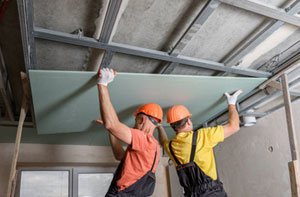
Dry Lining Silloth: There are several home remodeling assignments that will need dry lining to be done, and several Silloth plasterers should be able to carry this out for you. An approach which produces a surface that doesn't have to be plastered, plasterboard is affixed to a brick surface, metal Gypframe or a wood studding or joist. While you can paint or decorate the plasterboard surface itself, in general most elect to have the plasterboard skimmed with a fine coat of plaster to give it an extra smooth finish. As for fittings, when fixing to a metal Gypframe Jack-Point self drilling, self tapping screws are used, when fixing to a brick or masonry wall the "dot and dab" method is used and when attaching plasterboard to timber stud or joists, nails or drywall screws are used. (Tags: Dry Liners Silloth, Plasterboarding Silloth, Dry Lining Silloth)
Polished Plastering Silloth

Extremely fashionable at present, polished plaster is a modern version of classic Italian plasterered finishes. Describing anything from rugged looking textured plasters to really highly polished Lucidato, Venetian and Marmorino plasters, the expression "Polished Plaster" in fact describes a wide selection of high quality plaster finishes. Polished plaster is chiefly used on interior walls and ceilings, to provide a surface finish that appears like polished limestone, marble or travertine. Polished plaster delivers a feeling of depth by means of natural shade variations while being sleek and smooth to touch. It is also entirely possible to combine these forms of plasters to develop quite unique tailor-made finishes. Polished plaster can be coloured or dyed by using natural or synthetic colourants. The opportunity to add a tint to Venetian plaster is especially useful when a specific "marbled" design is required, or when a colour that doesn't exist in nature is needed. (Tags: Venetian Plaster Silloth, Polished Plastering Silloth, Polished Plaster Silloth, Marbled Plaster Silloth)
Plasterer Silloth
A plasterer in Silloth is a skilled tradesperson who works solely with plaster, spreading a smooth, even layer of this material over an otherwise rough and uneven surface. Plastering as an occupation has been in existence for many hundreds of years, whilst the technique in general has been employed in the repair and finishing of structures for millennia. Nowadays, plaster is used to generate an even and smooth surface on the internal walls of domestic and commercial premises. Plaster is also sometimes used to make ornate and decorative cornices and mouldings that can be employed for adorning the internal ceilings and walls of rooms. The plastering process also plays a vital role in many home improvement projects in Silloth, and can be used in the finishing of porches, extensions, garages, loft conversions and more.
Plastering Tasks Silloth

Silloth plastering specialists will likely help you with ceiling overboarding in Silloth, tyrolean rendering, wall crack repairs, artexing a ceiling or wall Silloth, blown plaster, recessed TV walls Silloth, skimming over dry lining, coloured K Rend in Silloth, false ceilings, skirting board installation, fibrous plaster, metal studding partitions in Silloth, dry lining and skimming walls, chamois plaster, ceiling replacements, lay in grid suspended ceilings, fire and flood restorations, drop ceilings, lime plastering Silloth, lime rendering, plastering restoration, drywall plastering and skimming, dot and dab walling Silloth, dry dashing in Silloth, magnetic plaster Silloth, ornate coving, patch plastering, screeding concrete floors, quotations for plastering, Venetian polish plaster Silloth and other plastering work in Silloth, Cumbria.
Silloth Plastering Services
- Silloth Artexing
- Silloth Plaster Patching
- Silloth Plasterer
- Silloth Partitioning
- Silloth Dry Lining
- Silloth Coving Installation
- Silloth Plastering Quotations
- Silloth Ceiling Replacements
- Silloth Plasterboarding
- Silloth Plastering
- Silloth Polished Plastering
- Silloth Plaster Re-Skimming
- Silloth Plaster Repairs
- Silloth Soundproofing
Other Useful Trades in Silloth Cumbria

Naturally, whenever you're doing home improvements in Silloth, Cumbria, you are likely to need all kinds of different tradesmen and along with a plasterer in Silloth, Cumbria, you may additionally need artexing in Silloth, cleaners in Silloth, electrical re-wiring in Silloth, polished plaster in Silloth, bricklayers in Silloth, painters in Silloth, dry lining services in Silloth, cornice installers in Silloth, tiling in Silloth, pebble dashing in Silloth, screeding in Silloth, dry liners in Silloth, plaster mouldings in Silloth, external wall insulation in Silloth, rubbish removal in Silloth, external rendering in Silloth, carpenters in Silloth or building contactors in Silloth.
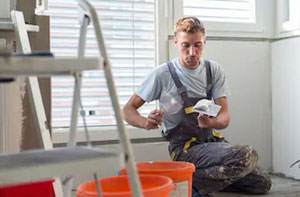 Plasterers Silloth
Plasterers Silloth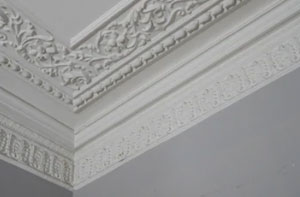 Plastering Near Me
Plastering Near Me Plasterer Silloth
Plasterer SillothMore Cumbria plasterers: Cockermouth Plasterers, Windermere Plasterers, Cleator Moor Plasterers, Kendal Plasterers, Keswick Plasterers, Barrow-in-Furness Plasterers, Whitehaven Plasterers, Penrith Plasterers, Carlisle Plasterers, Grasmere Plasterers, Egremont Plasterers, Millom Plasterers, Wigton Plasterers, Grange-Over-Sands Plasterers, Ulverston Plasterers, Maryport Plasterers, Workington Plasterers and Wetheral Plasterers.
Plasterer Silloth - Plasterers Silloth - Plaster Skimming Silloth - Plastering Silloth - Cheap Plasterer Silloth - Polished Plaster Silloth - Plasterboarding Silloth - Rendering Silloth - Coving Silloth





